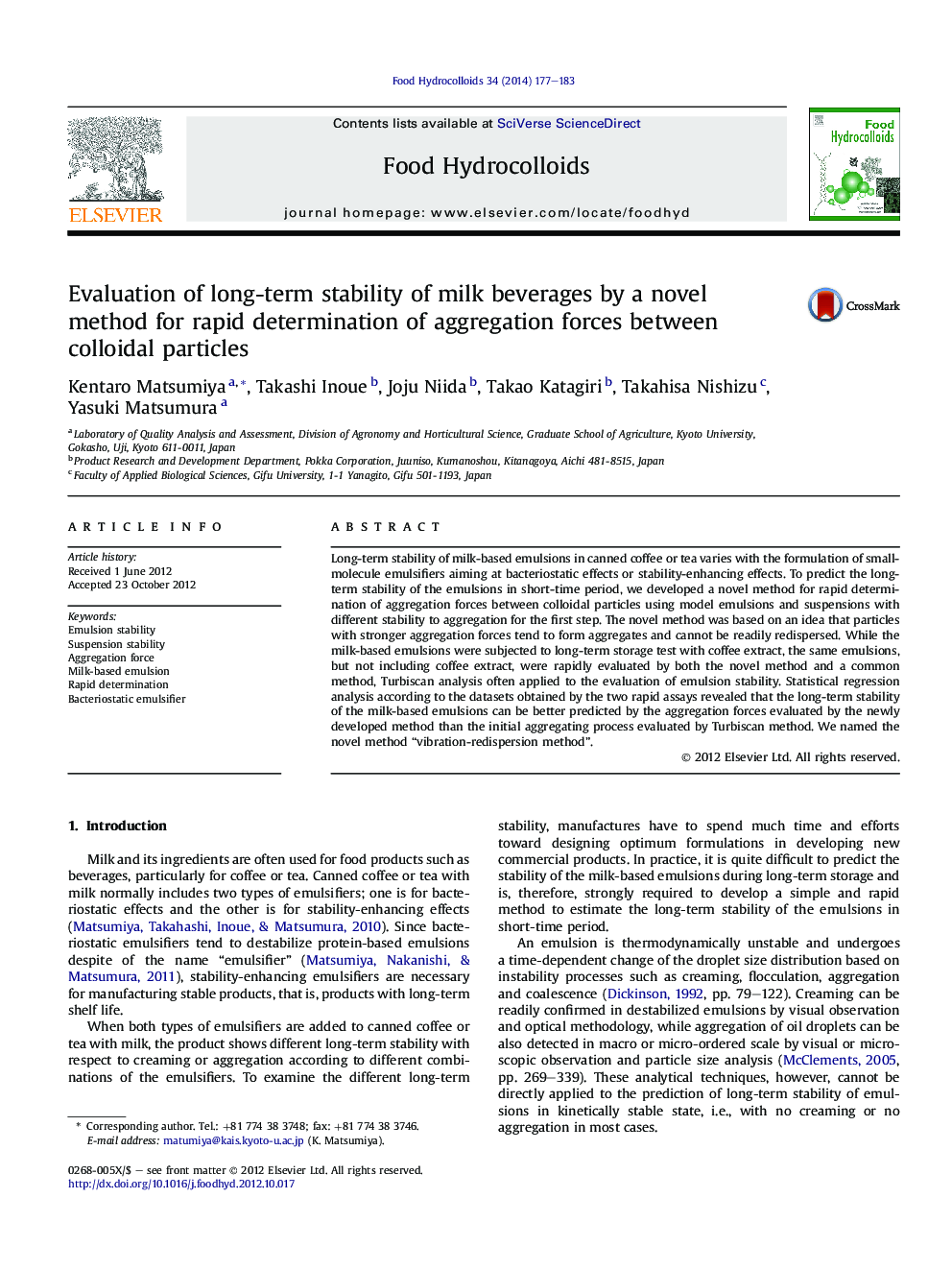| Article ID | Journal | Published Year | Pages | File Type |
|---|---|---|---|---|
| 603951 | Food Hydrocolloids | 2014 | 7 Pages |
Long-term stability of milk-based emulsions in canned coffee or tea varies with the formulation of small-molecule emulsifiers aiming at bacteriostatic effects or stability-enhancing effects. To predict the long-term stability of the emulsions in short-time period, we developed a novel method for rapid determination of aggregation forces between colloidal particles using model emulsions and suspensions with different stability to aggregation for the first step. The novel method was based on an idea that particles with stronger aggregation forces tend to form aggregates and cannot be readily redispersed. While the milk-based emulsions were subjected to long-term storage test with coffee extract, the same emulsions, but not including coffee extract, were rapidly evaluated by both the novel method and a common method, Turbiscan analysis often applied to the evaluation of emulsion stability. Statistical regression analysis according to the datasets obtained by the two rapid assays revealed that the long-term stability of the milk-based emulsions can be better predicted by the aggregation forces evaluated by the newly developed method than the initial aggregating process evaluated by Turbiscan method. We named the novel method “vibration-redispersion method”.
Graphical abstractFigure optionsDownload full-size imageDownload as PowerPoint slide
